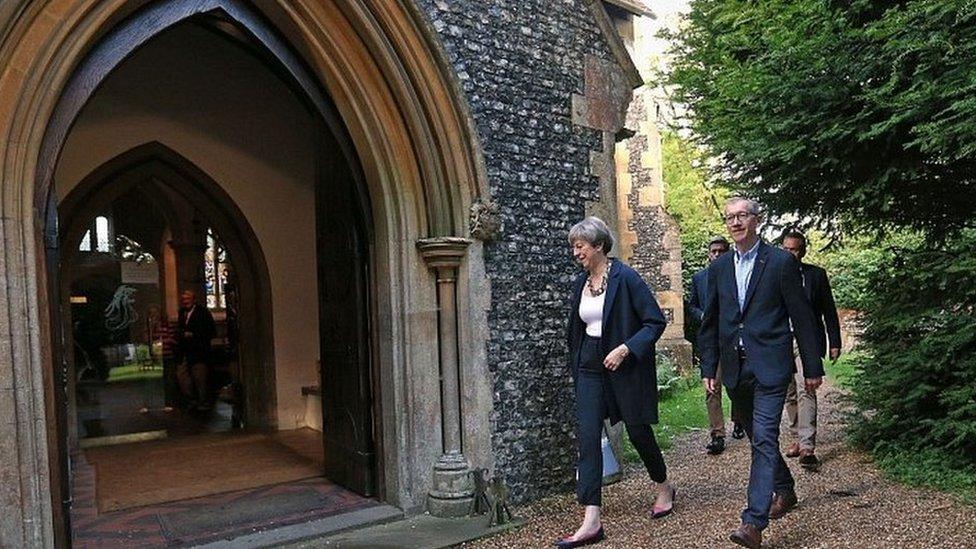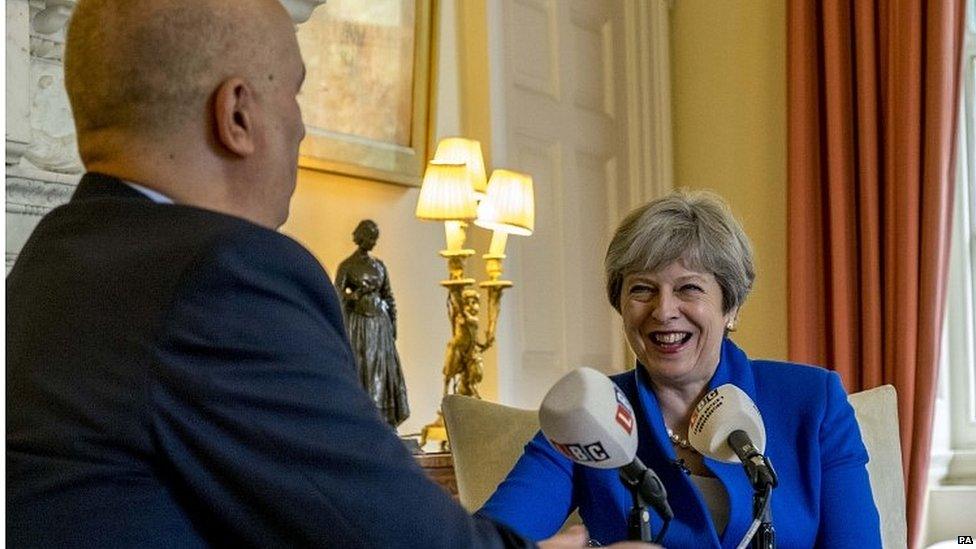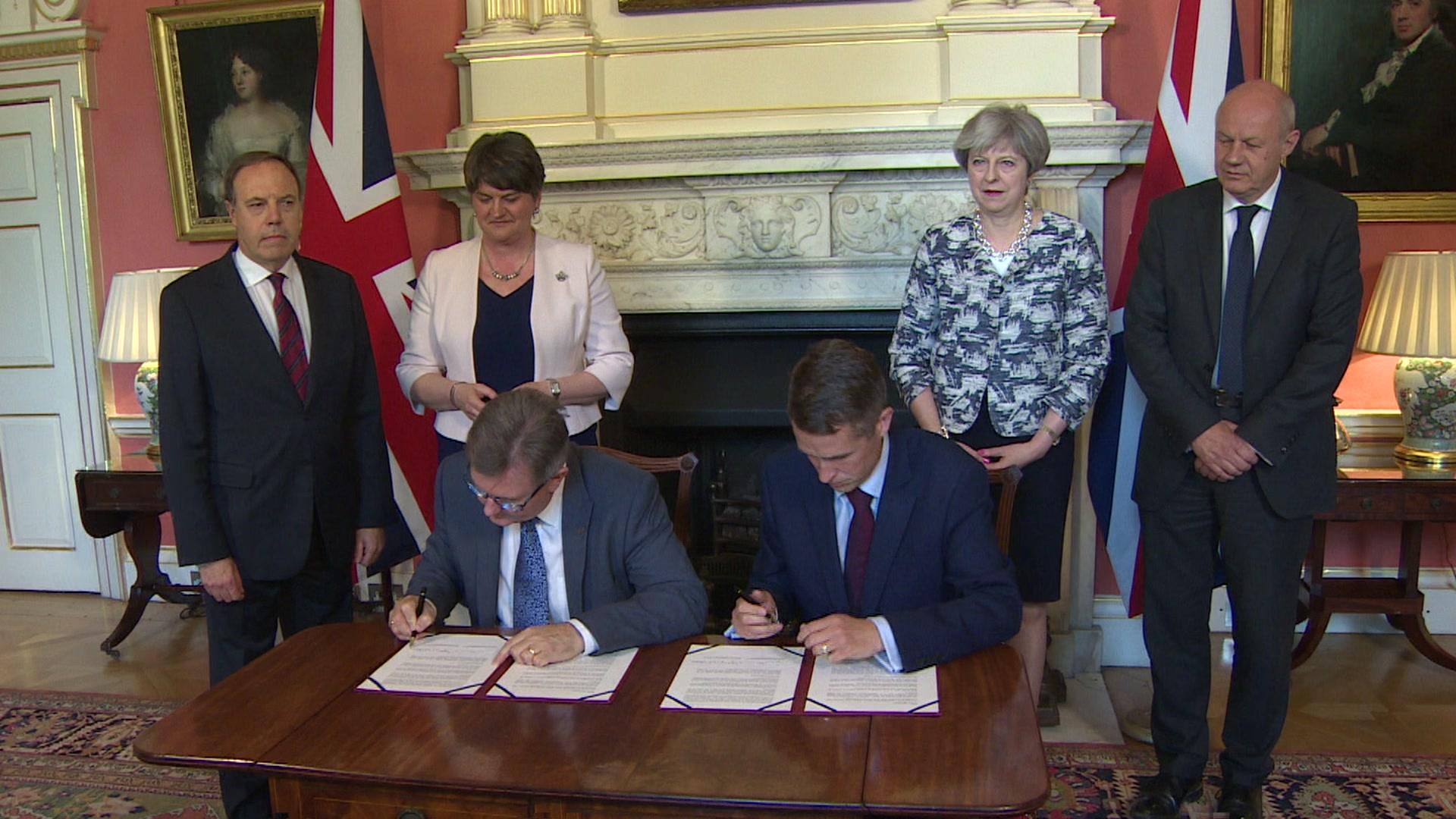Theresa May says Tories will not 'go backwards' on gay rights
- Published

The prime minister is a regular churchgoer
The Conservatives will not retreat in their support for gay rights because of their pact with the Democratic Unionists, Theresa May has insisted.
The prime minister told LBC Radio her party had come a long way on issues such as gay marriage, while her own attitudes had changed over the years.
There would be no "going back", and the Tories would continue to defend LGBT rights and extend them where possible.
The DUP is opposed to equal marriage and same-sex couples adopting children.
Some Conservatives have expressed reservations about their party's parliamentary deal with the DUP - which will allow Mrs May to govern and pass key legislation after she failed to win an overall majority at the election.
Mrs May, who is holding a reception later to mark the 50th anniversary of legislation decriminalising homosexuality, said she did not agree with the DUP on a number of social issues but the alliance would not affect existing equality or discrimination laws or stop the Conservatives from seeking to advance them.
'Changed lives'
In the LBC interview, Mrs May - whose father was a vicar - spoke of the impression left on her after attending a same-sex marriage in her Maidenhead constituency, witnessing a couple tie the knot who would otherwise have had to travel to South Africa to get married.
"It is seeing people having, you know, their lives changed and... being able to take a different approach to their lives because of the government passing legislation like that that I think has been so important," she said.

The prime minister has been speaking to LBC's Iain Dale
"I think if you look at what has happened over the years, you will see a change that's taken place in the Conservative Party and in individuals.
"I'll be honest, my attitude on a number of issues has changed over the years as well."
As an opposition MP, Mrs May voted against reducing the age of consent for gay people, the repeal of Section 28 and civil partnerships, but as home secretary and minister for women and equalities she played a key role in steering the legalisation of same-sex marriage through Parliament.
While she understood people's concerns about the DUP's stance on several issues, she said, she had a duty to form a stable government and there were many areas of agreement such as counter-terrorism and the future of the Union.
"The Conservative Party has not gone back," she said.
"We will continue to push forward, to enhance LGBT rights and we are pleased with what we have been able to do so far, but want to do more.
"And that will not be changed by our relationship with the DUP."
'Reflecting attitudes'
Asked whether she would now support Anglican vicars being able to bless same-sex marriages in church, Mrs May said this was a matter for the Church of England.
But she added: "The Church of England has itself come a distance in terms of looking at these issues. And obviously they will want to reflect as attitudes more generally change, as society changes."
In an article for Pink News, external, Mrs May said that while it remained a matter for the devolved government in Northern Ireland, she would supported legalising equal marriage, believing that LGBT people should have the same rights there as they enjoyed in the rest of the United Kingdom.
She also said the government would "review" legislation to allow transgender people to legally change their gender, amid calls from Labour leader Jeremy Corbyn to do away with the medical checks currently required in order for people to legally transition.
"We must tackle transphobic bullying and make sure that transgender rights are supported," she wrote.
"That is exactly why we are reviewing the Gender Recognition Act. We intend to make an announcement very soon on the action we will take."
- Published26 June 2017
